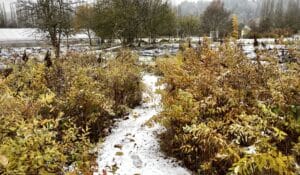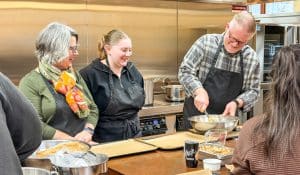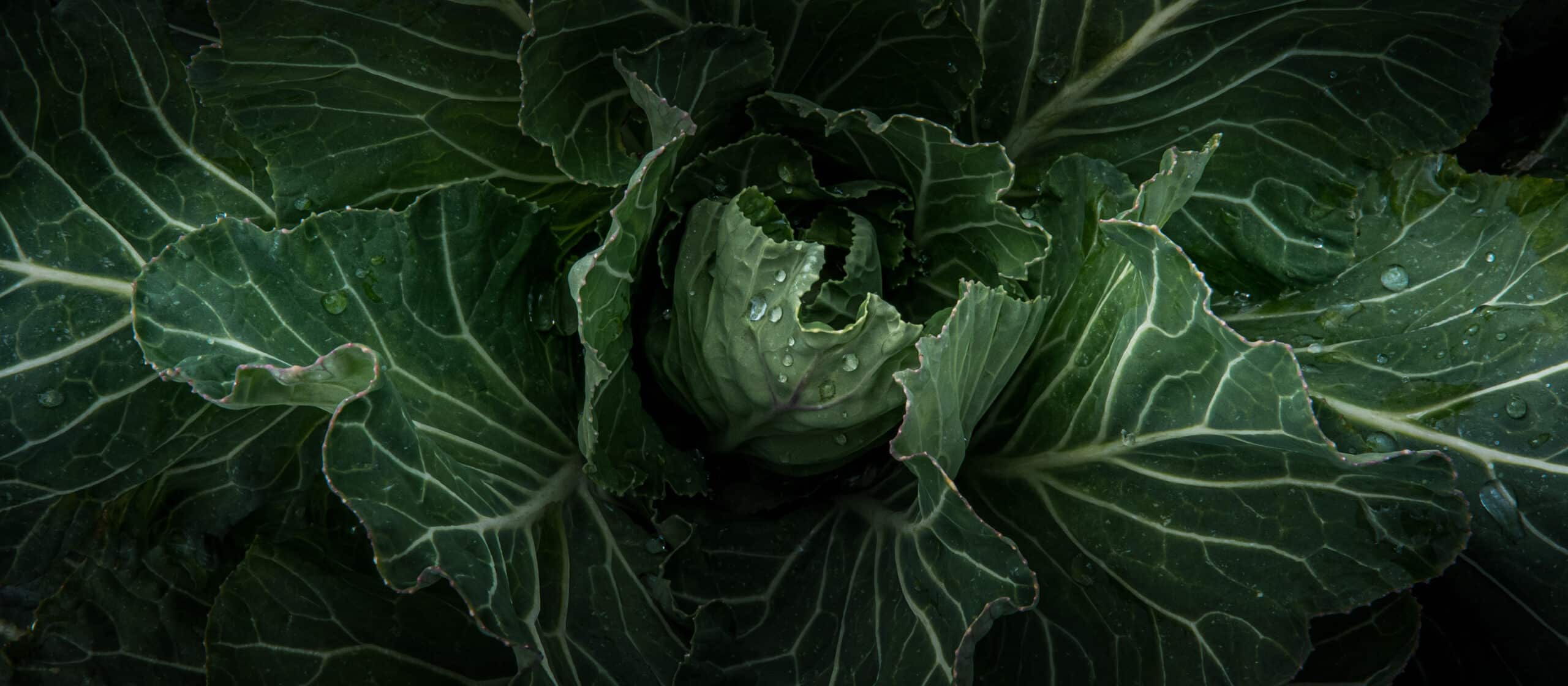
Featured Farm: Sammamish Farms
Featured Farm: Sammamish Farms
- posted on: January 6, 2024
- posted by: Val McKinley
"*" indicates required fields

In this “Featured Farm” series, we highlight area farmers who provide the bounty of fresh, local produce that is sold in our Farm Market. This month, we’re featuring Sammamish Farms, which is located just a few miles from 21 Acres near the south end of the Sammamish Valley Agricultural Production District. Owner Erik Goheen recently answered our questions about his three-acre farm, what excites him about his work, and the challenges faced by local farmers in King County.
Tell us about your journey into farming – why did you choose this path?
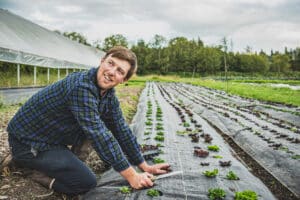
Conventional farming practices are designed to extract profit, often through international markets, at the expense of the soil, water and people working the land. Tillage and fertilization contribute to degraded water quality and toxic algae blooms, and wholesale pesticide and herbicide applications affect pollinators, amphibians, wild birds, and, as increasingly recognized by scientific communities, the humans who apply them. The question in my mind became, how can we grow food in a more equitable way?
When I came to Woodinville and worked as a consultant with 21 Acres in 2016, I ended up meeting two farmers and community leaders in the valley, Claire Thomas of the Root Connection and Roger “Dr. Maze” Calhoun. Not too much later, Roger retired from farming, and I was able to rent a piece of his former farm to start my business. I discovered minimal soil disturbance techniques and have been following a living soil farming ethos ever since.
What is Sammamish Farm’s mission?
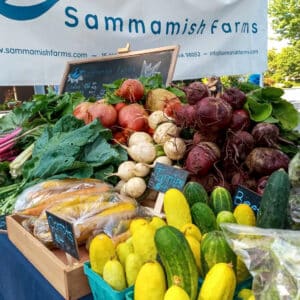
What are you known for?
We grow great salad mix and baby greens. We’re dirt farmers, and we’re into doing right by the soil. We use a tool called a broadfork to aerate our soil. It’s a slow, manual process, but the earth worms thank us for avoiding the tiller.
What are some of the biggest challenges you face as a farm operation?
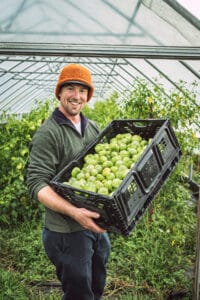
I’ve begun focusing more on having a few full-time staff, instead of several part time employees, as consistency in quality is really important to the Sammamish Farms’ brand. Since we do a customized CSA with delivery, getting a very stable work schedule in season has been important for our success, and allowed us to become more efficient and effective farmers with the relatively few hours we do spend in the field.
We’ve managed to nearly eliminate weeding through our minimal soil disturbance techniques, which is a big timesaver, and we have a pretty state of the art wash/pack system and a few specialized tools that speed up harvesting our most lucrative crops. Combined with a small footprint and centrally located infrastructure, we’re always working to reduce unnecessary steps and other time wasters, so the team can earn a sustainable wage for themselves and build on the farm’s bottom line.
What new projects are happening in the upcoming year?
This spring, we will be working with the USDA to build two new high tunnel greenhouses to extend our growing seasons. The USDA has programs that support farmers in developing the land, and we’re fortunate to be working on a five-year lease to construct these buildings. We’ll use them to increase our summer crop varieties, like tomatoes and cucumbers, and shoulder season production of salad and greens.
What is something you grow that you are excited about, and how do you prepare and eat it?
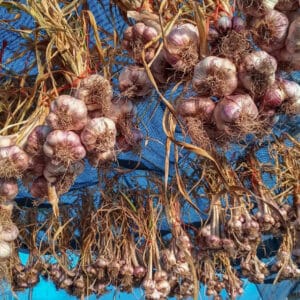
Is there anything else that would be interesting to know about Sammamish Farms?
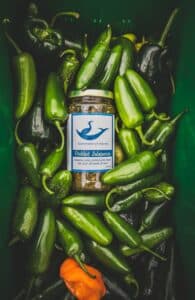
Support our local farmers and producers! The 21 Acres Farm Market is open year-round, Wednesday through Friday 11:00 AM to 6:00 PM, and Saturday 10:00 AM to 4:00 PM. Products are always Certified Organic or produced by farmers committed to sustainable methods, including no chemical inputs or nasty pesticides.










 back to blog overview
back to blog overview


